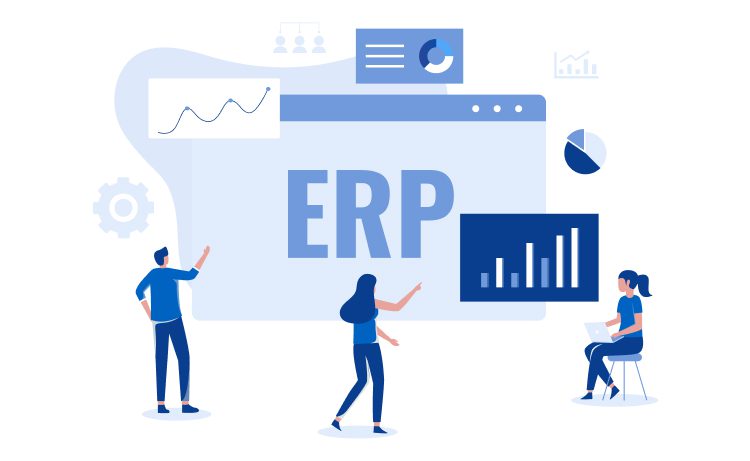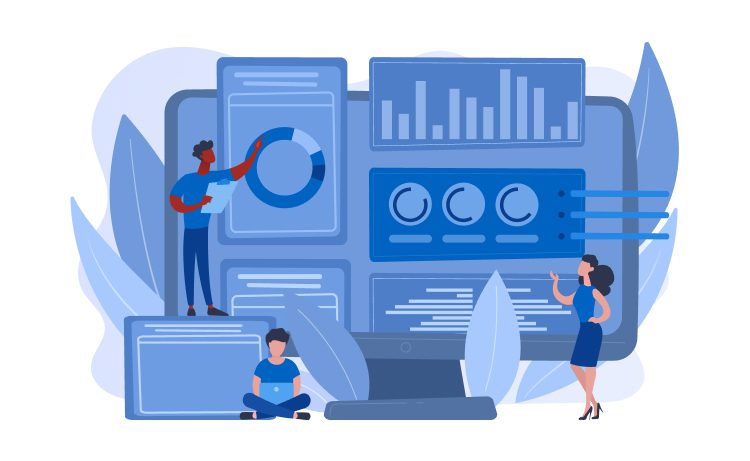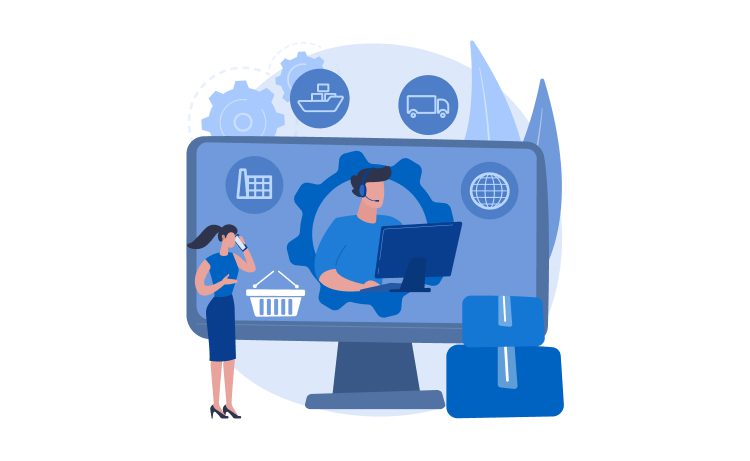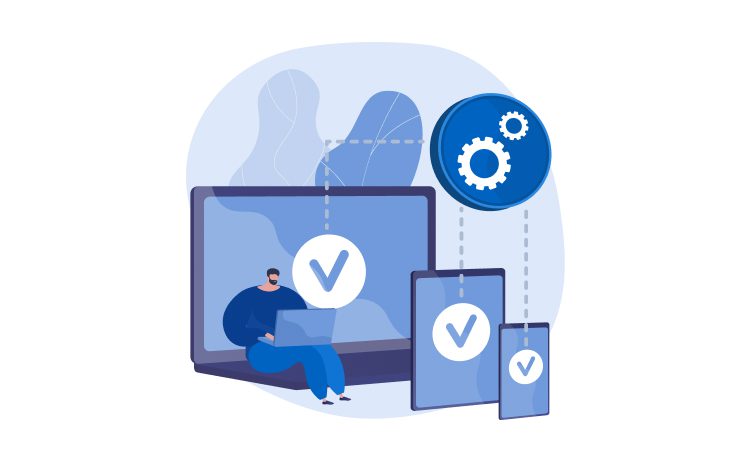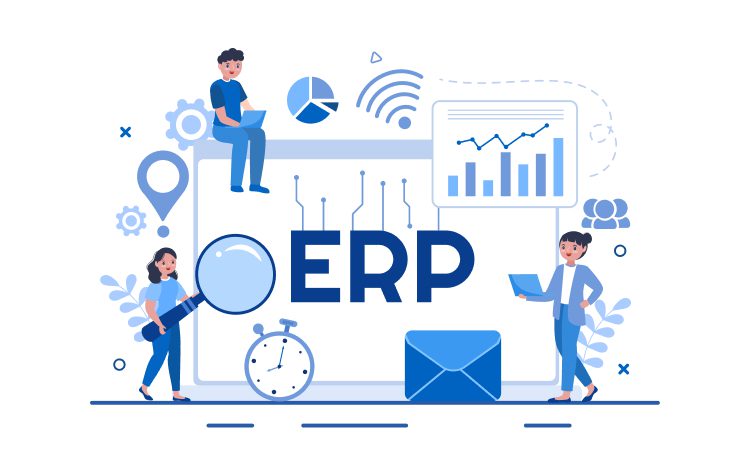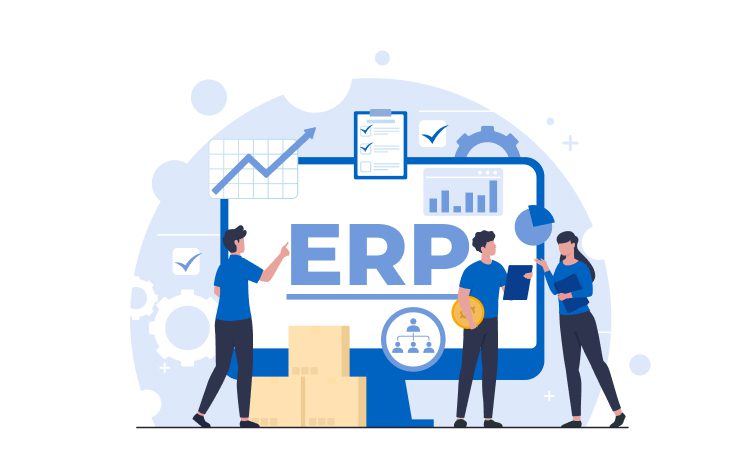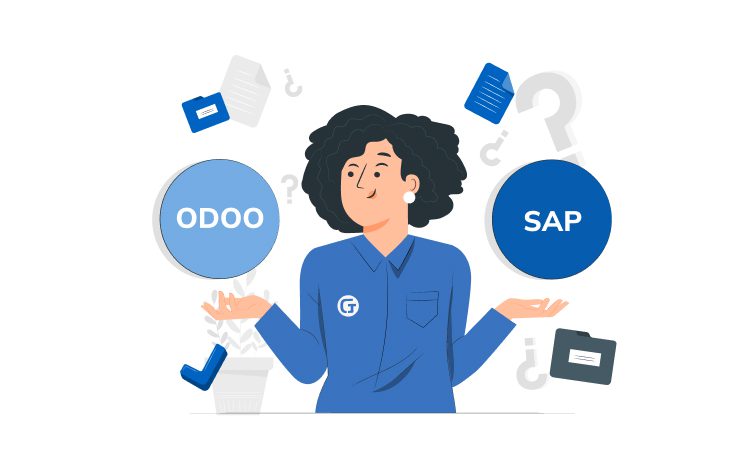
Odoo vs. SAP Business One: Choosing the Best ERP Option on the Market



Exploring the enterprise resource planning market requires a strategic approach and a proactive mindset. You can come across hundreds of software options for quality control and project management, but pinpointing the ideal solution can still be a tough task.
Software programs may tick multiple boxes, but only a handful can provide a comprehensive, all-in-one package without requiring extensive (and expensive) customization. Choosing the right ERP system shapes the trajectory of a company’s future. Its reach goes well beyond daily tasks, influencing long-term scalability, profitability, and overall business efficiency. Improved functionality is the driving force behind ERP adoption, according to 40% of surveyed companies.
However, even the most powerful ERP won’t work magic without a well-executed implementation. Given the significant investment of resources, you need to find the perfect match before committing. In this article, we’ll explore the differences between Odoo ERP and SAP Business One and give you valuable insights, helping you decide on the most suitable ERP for your business.
Before we compare different systems for resource planning, we need to understand why you need an ERP system and why juggling separate software for various business operations shouldn’t be a long-term solution.
ERP is essential to your strategy, especially when competing in a saturated market. Investing in ERP can benefit your company and improve your competitive advantage. As the market undergoes rapid changes, you’ll be able to adapt faster than others and achieve operational efficiency, which wouldn’t be possible without a unified system.
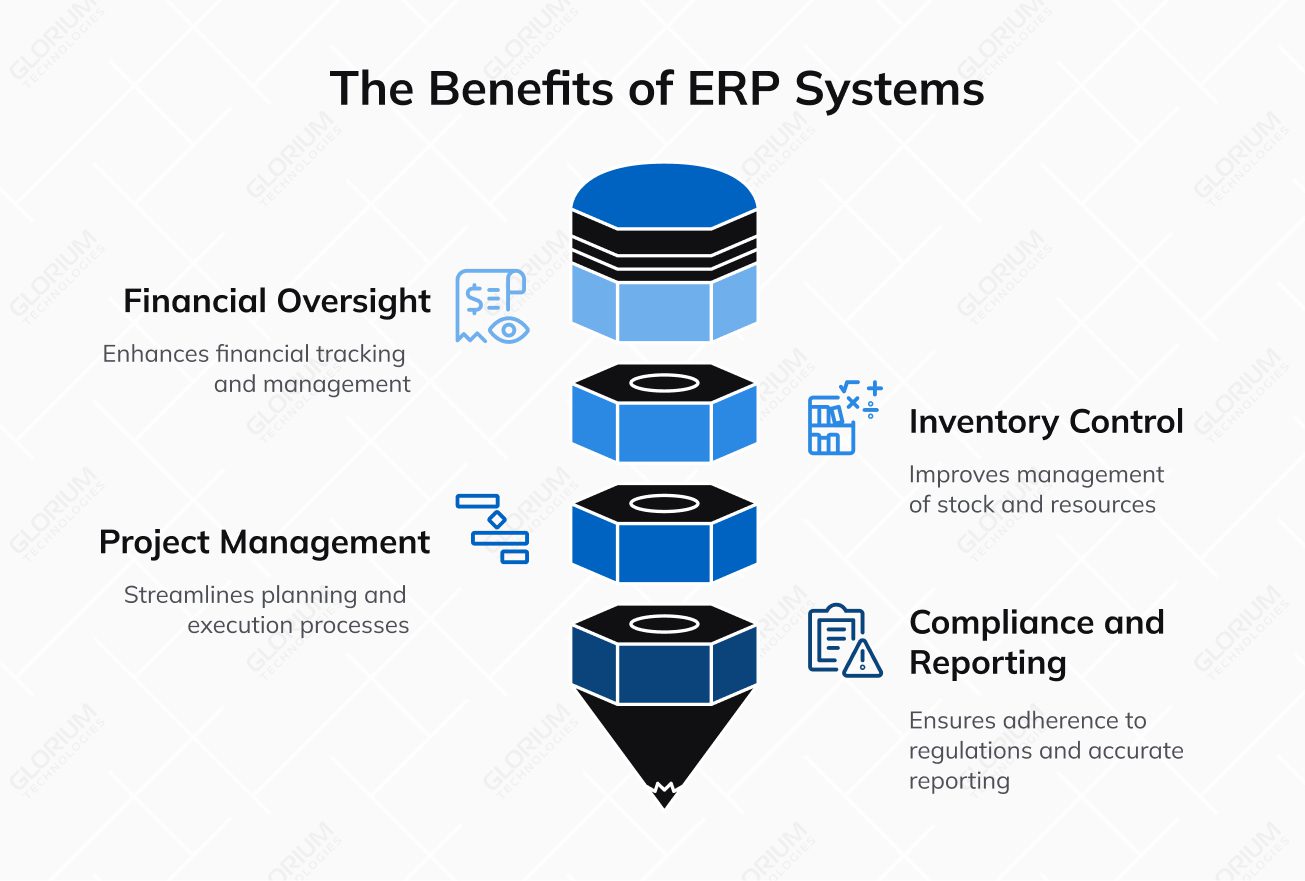
Content
At its core, enterprise resource planning software is a centralized solution that integrates various business functions into a single platform. You can keep track of finances, manage supply chains, oversee production, and stay on top of customer relations, all without jumping between different applications. By taking fragmented systems out of the equation, you can capitalize on:
No matter whether you are in manufacturing, healthcare, construction, logistics, or e-commerce, ERP can help you scale. Even though large companies now dominate 39% of the ERP market, small to mid-sized businesses may see a 7% yearly increase this year.
Odoo set out to shake up the enterprise software scene by delivering a powerful solution for businesses drowning in complicated systems. Unlike rigid, one-size-fits-all ERP tools, it takes a modular approach. With 82+ integrated apps and 1,000+ community-built modules, you can pick what fits, leaving out complex workflows and unnecessary extras.
In ten years, Odoo has grown from a small open-source software into a heavyweight in the ERP world. The platform now sees over 20,000 daily downloads, making it one of the most widely adopted business management suites. Odoo is a company’s go-to solution, regardless of niche and size.
Designed with an optimized data model, Odoo ensures efficient data management and seamless integration across all business functions, driving consistency and accuracy throughout your organization.
Odoo covers all the bases when it comes to business and production management. Its modular system includes:
Odoo is a great fit for businesses looking for scalable ERP software without getting locked into rigid, overpriced systems. It works well for manufacturing, retail, e-commerce, construction, and service-based companies that want more control over their operations without spending a fortune. Whether your business is just getting off the ground or already well-established, Odoo can adapt and grow with changing needs.
If you are on the lookout for an Odoo official partner, Glorium Technologies is precisely what you need. We have 15+ years of business expertise and a tech-savvy team to bring the trickiest ERP implementation project plan to life. Start your path to better enterprise performance with us!
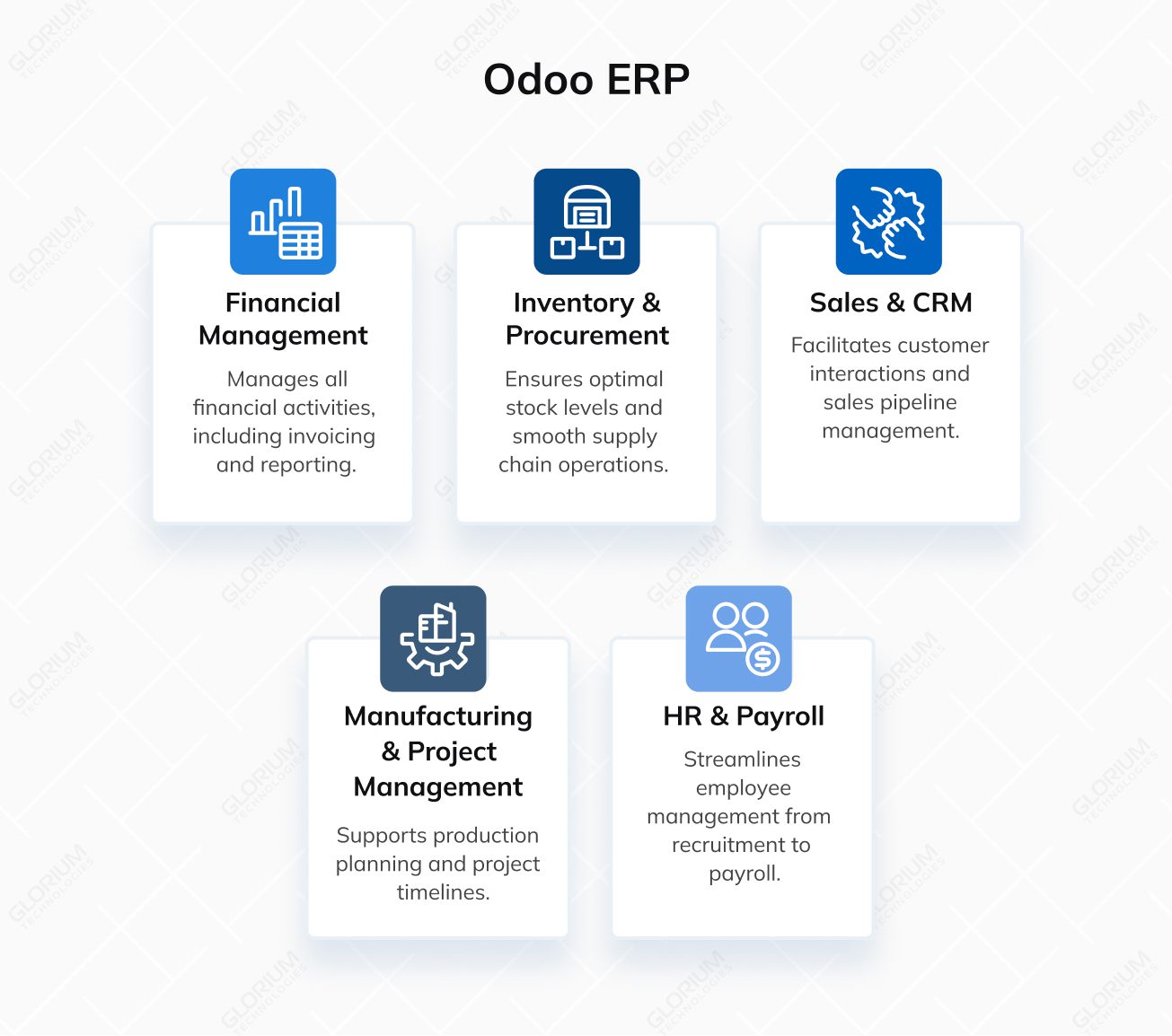
What started as an offshoot of the Xerox business computing division grew into an ERP powerhouse. In 2002, SAP acquired what is now known as SAP Business One to target the segment of medium-sized businesses.
Unlike SAP’s enterprise-level offerings, SBO was built to be rolled out quickly with minor adjustments. You can choose between hosting it on your own servers or opting for a managed service, depending on your business needs. While SBO meets the criteria of smaller enterprises, it’s not without its limits. It works well for light manufacturing but falls short for companies needing advanced production planning or shop floor tracking.
SAP ERP is stacked with tools designed to help businesses gain a firm foothold in the niche. Some of its standout features include:
SAP is the best bet for companies with complex operations and multi-layered processes. Large manufacturing, finance, healthcare, and retail corporations often turn to SAP for its deep industry focus. While small businesses can also use SAP, they may find it harder to implement. For companies that need a structured, all-encompassing ERP solution, SAP can be just a match.

Can’t decide whether Odoo or SAP is a better choice for your business? We feel you. Picking the ideal software solution for meeting complex needs can be tricky. Both options are designed to bring order to business processes, but they take different approaches. While Odoo has a modular architecture, SAP Business One sticks to a more standardized framework. Pricing and industry application also set them apart.
Here’s a comprehensive comparison of these two solutions based on several criteria:
When it comes to shaping the software to satisfy demands, Odoo and SAP Business One play by different rules. Odoo’s modular nature allows you to cherry-pick business apps so you won’t be left with irrelevant features. This open-source ERP software makes addressing a business’s specific needs a cinch by enabling users to customize and scale the system according to their unique requirements.
SAP Business One has a more rigid structure. While it does offer minimal customization, tweaking the system requires third-party developers and can rack up additional costs.
Odoo ERP services can involve significant customization and more flexibility. SAP Business One may be better suited for companies that prefer a more structured approach.
Regarding cost, Odoo and SAP sit on opposite ends of the spectrum. Odoo offers an open-source Community Edition, meaning businesses can get up and running without shelling out money (aside from hosting and setup costs). The Odoo Enterprise version requires a subscription but remains more budget-friendly than SAP.
SAP Business One has a hefty price tag. Licensing, deployment, and annual maintenance fees can quickly add up, making it a big-ticket investment upfront. SAP might seem too heavy on the wallet if you are not ready for a long-term financial commitment.
No ERP system can deliver real business value if employees struggle with using it. Odoo has a modern, user-friendly interface, making it less intimidating for new users. Since businesses can activate only the modules they need, the system doesn’t feel overloaded with unnecessary functions. While powerful, SAP Business One isn’t beginner-friendly. Its outdated interface requires more hand-holding to get teams up to speed.
An ideal ERP grows with a business instead of holding it back. Odoo plays well with others, offering a vast library of third-party integrations that allow businesses to connect existing tools with little to no effort. Whether a company needs an e-commerce link, payroll system, electronic data interchange, or marketing automation, Odoo has options on hand. Additionally, it supports third-party CAD integrations for businesses that rely on product design and manufacturing workflows.
SAP Business One also supports integrations, but its closed ecosystem can make external connections trickier. Businesses often need custom development to integrate certain tools, adding extra steps and costs to the process.
Every ERP solution has its target audience. The choice boils down to how structured or flexible a business needs its ERP to be. In the Odoo vs. SAP comparison, the former is a great fit for businesses seeking flexibility and customization. It works well in manufacturing, retail, e-commerce, construction, and service-based industries where companies need adaptable solutions without breaking the bank. SAP Business One tends to suit large enterprises that operate in the finance, healthcare, and manufacturing industries. Businesses that require extensive compliance tracking and corporate-level reporting often lean toward SAP.
When managing sensitive business data, security and compliance are non-negotiable. Odoo incorporates user access control and data encryption to patch vulnerabilities. But its open-source nature calls for implementing additional security layers. If you must comply with industry regulations, like GDPR or HIPAA, you may require custom configurations and third-party security solutions.
SAP Business One is built with enterprise-grade security measures in mind. It provides role-based access and detailed audit trails for industries with strict regulatory oversight. Companies in the finance and government sectors can choose SAP due to its built-in security features and compliance certifications.
SAP Business One offers a structured, ready-to-use security framework for businesses that handle sensitive customer information or operate under strict legal requirements. For businesses dealing with high transaction volumes, the Odoo system also ensures that data is processed efficiently and accurately.
When things go wrong, having access to the right support makes all the difference. Odoo has a strong open-source community, meaning businesses can tap into thousands of developers, forums, and third-party consultants for solutions. The Odoo Enterprise version comes with official support, while the Odoo Community Edition’s users need to rely on the developer ecosystem for troubleshooting.
SAP Business One provides official, structured support. However, it comes at a cost. You can reach out to SAP-certified consultants or service teams to address specific requirements, though getting help often involves additional expenses.
| Feature | Odoo | SAP |
| Activity Tracking | Yes | Yes |
| Audit Management | Yes | No |
| Billing & Invoicing | Yes | No |
| Supply Chain Management | Yes | Yes |
| Access Controls/Permissions | Yes | No |
| Customer Relationship Management | Yes | Yes |
| Human Resources Management | Yes | Yes |
| Module Structure | Yes | No |
| Receipt Management | No | No |
| Project Management | Yes | Yes |
| Mobile-Friendly | Yes | Yes |
| Full Web Interface | Yes | Yes |
Does no ERP perfectly fit your business? Take a step back to assess your budget and short- and long-term priorities. Both systems can cater to your business needs but in different ways.
If you can’t afford a high upfront investment, implementing Odoo can be a part of your budget-smart strategy. Its robust architecture and modular structure enable gradual expansion, meaning you can adjust the ERP as you go. It suits startups, retailers, e-commerce, construction companies, and service providers looking for a system that can adapt to their workflow.
Those who manage multiple locations and go all out to meet strict compliance requirements should pay heed to SAP. While the investment is significant, it delivers advanced automation, in-depth reporting, and industry-specific tools. Banking, healthcare, government, and multinational enterprises often rely on SAP.
If you’ve decided on Odoo ERP implementation and communicated its benefits to all levels of staff, look no further than Glorium Technologies. We have years of hands-on experience and deep knowledge to make your enterprise transition as comfortable and fast as possible. As an official Odoo partner, we guarantee a smooth setup, from data migration to system customization.
Whether you are installing your first ERP system or switching from a current one, we’ll handle the details so you can devote attention to your business. Book a free consultation today, and let’s get started.
ERP tools, like Odoo and SAP Business One, include CRM modules that help businesses manage customer interactions, track sales leads, and streamline communication across departments via an intuitive user interface. With a CRM integrated into the ERP system, businesses can improve customer satisfaction by responding more quickly to inquiries, providing personalized services, and enhancing overall customer retention.
Odoo and SAP Business One differ in their approach to business functions. Odoo offers a modular system where you can choose and customize the apps and add other modules later if needed. On the other hand, SAP Business One is more structured with a set framework that is better suited for businesses requiring more standardized processes and greater control over compliance and reporting.
Both Odoo Enterprise and SAP Business One are designed to serve various industries, but with distinct approaches. Odoo’s high level of adaptability and user-friendliness make it particularly well-suited for the SME market segment, with industries such as manufacturing, retail, e-commerce, and service-based businesses reaping the benefits.
SAP Business One, while also versatile, tends to cater more to large enterprises in industries such as finance, healthcare, and manufacturing that require a more structured ERP system with advanced features and complex compliance requirements.
